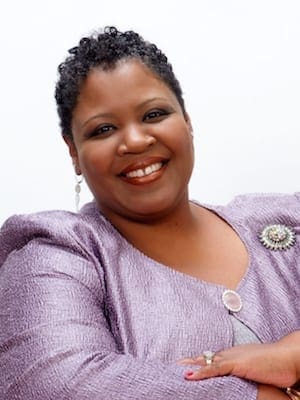Not many days hence, the election season of 2016 will be in the history books.
Words spoken, however, throughout the course of one of the most contentious presidential races in modern times will linger.
Front and center have been the remarks made about women. For centuries, women have borne the brunt of abusive, oppressive, degrading, shaming and dehumanizing words and actions.
Jesus warned, “Out of the abundance of the heart, the mouth speaks” (Matthew 12:34). While some may view lewd and vulgar comments as simply “boy or locker-room talk,” the reality remains – words have power.
Abusive words unchecked can lead to abusive actions. When toxic words are mischaracterized as “harmless” or minimized as fun and frolic, the object or the target of those words are left defiled, broken, humiliated and without recourse.
Additionally, behaving as if harmful words are OK creates paths for further mistreatment and abuse.
When individuals feel that it is OK to say anything they want, they tend also to believe that they can do anything they want.
This “anything goes against a woman” mentality dehumanizes women and makes them vulnerable to many and varied forms of abuse.
In 1993, the United Nations prepared a “Declaration on the Elimination of Violence Against Women.”
In spite of this noble attempt, these five facts and figures posted on UNWomen.org still loom large:
- Worldwide, more than 700 million women alive today were married as children (below 18 years of age). Of those women, more than one in three – or some 250 million – were married before 15. Child brides are often unable to effectively negotiate safe sex, leaving them vulnerable to early pregnancy as well as sexually transmitted infections, including HIV.
- Around 120 million girls worldwide (slightly more than one in 10) have experienced forced intercourse or other forced sexual acts at some point in their lives. By far, the most common perpetrators of sexual violence against girls are current or former husbands, partners or boyfriends.
- At least 200 million women and girls alive today have undergone female genital mutilation or cutting in 30 countries, according to new estimates published on the United Nations’ International Day of Zero Tolerance for Female Genital Mutilation in 2016. In most of these countries, the majority of girls were cut before age 5.
- Adult women account for almost half of all human trafficking victims detected globally. Women and girls together account for about 70 percent, with girls representing two out of every three child-trafficking victims.
- One in 10 women in the European Union report having experienced cyber-harassment since the age of 15 (including having received unwanted, offensive sexually explicit emails or SMS messages, or offensive, inappropriate advances on social networking sites). The risk is highest among young women between 18 and 29 years of age.
There is a connection between the heart, words and actions. We must not allow our nation to continue to embrace rhetoric that minimizes cruel, vulgar, abusive, objectifying words and actions against people in general and women in particular.
We must continue to speak up. We must continue to educate. We must continue to call out. We must continue to stand up.
We must adamantly, boldly and unapologetically declare that we will not tolerate abuse in any form.
May we choose words that empower, encourage, enlighten and uplift others over abusive and dehumanizing words each day.
 Chris Smith is pastor of Covenant Baptist Church in Euclid, Ohio, author of “Beyond the Stained Glass Ceiling: Equipping and Encouraging Female Pastors.” A version of this article first appeared on her blog, ShePastor, and is used with permission. You can follow Smith on Twitter @Revcsmith1.
Chris Smith is pastor of Covenant Baptist Church in Euclid, Ohio, author of “Beyond the Stained Glass Ceiling: Equipping and Encouraging Female Pastors.” A version of this article first appeared on her blog, ShePastor, and is used with permission. You can follow Smith on Twitter @Revcsmith1.
Senior pastor of Restoration Ministries of Greater Cleveland. She is the author of Beyond the Stained Glass Ceiling: Equipping and Encouraging Female Pastors.

